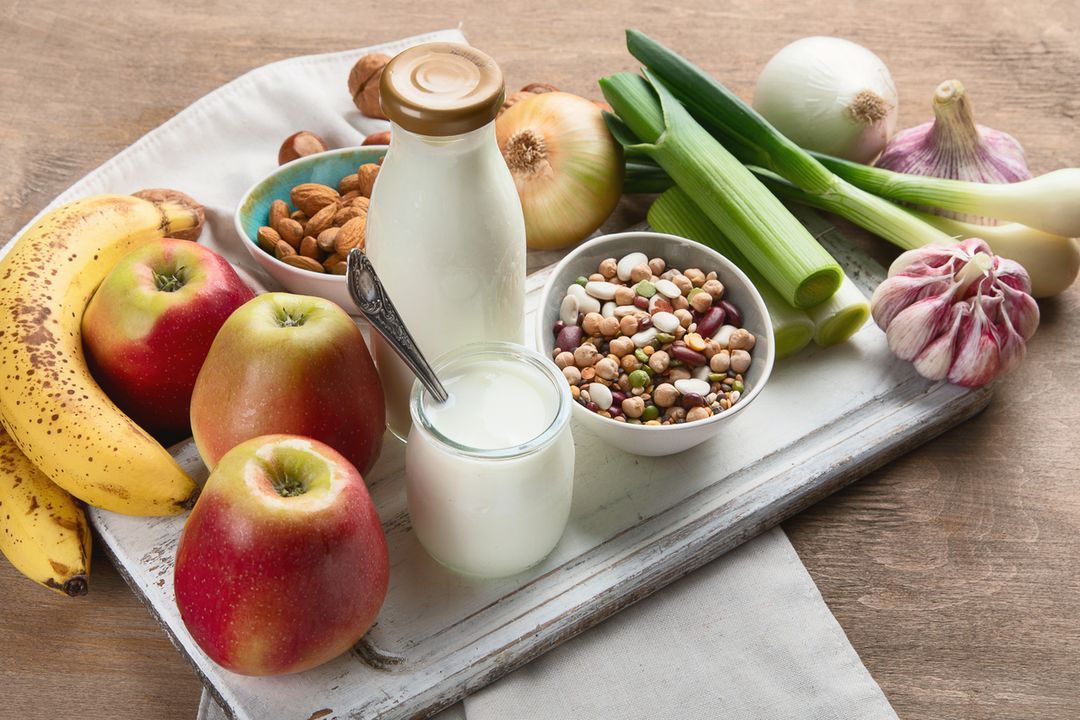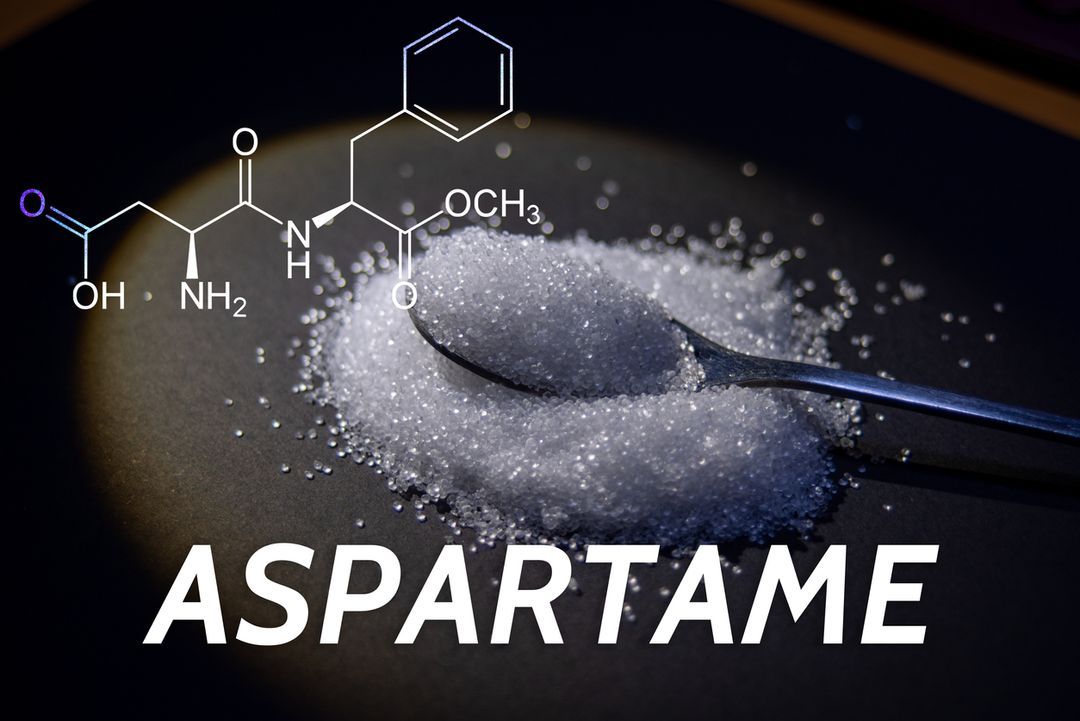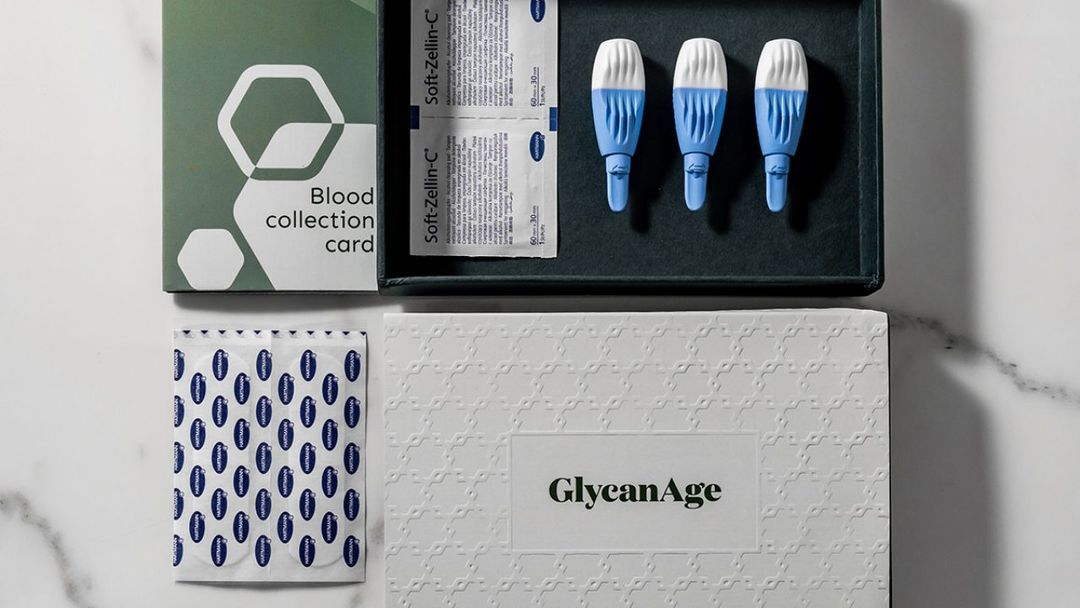From Fermented Foods to Fitness: How to Improve Your Gut Microbiome
Learn how to improve your gut microbiome for better health. From diet to lifestyle changes, this guide offers science-backed tips for good gut health.
Introduction
Are you constantly battling digestive issues, feeling sluggish, or simply curious about the buzzword "gut health"? You've landed in the right place. Your gut microbiome plays an essential part in your overall well-being. From influencing your mental health to your susceptibility to diseases, it's a topic that deserves undivided attention. Let's delve into the science-backed ways to improve your gut microbiome and, by extension, your life.
Understanding the Importance of Gut Health
Your gut microbiome, often referred to as your body's "second brain", is a complex ecosystem teeming with trillions of microorganisms. These include bacteria, viruses, and fungi that reside primarily in your lower intestine. Far from being mere passengers, these microbes play a crucial role in your general health.
Metabolic Health
A balanced gut flora enhances insulin sensitivity, reducing the risk of type 2 diabetes. It also contributes to weight regulation by overseeing hormones like leptin and ghrelin that control hunger. Additionally, certain strains of bacteria can positively influence cholesterol levels by breaking down bile acids. A healthy gut environment can even produce anti-inflammatory compounds, which help in mitigating chronic inflammation, a precursor to metabolic and other chronic diseases.
Immune System
Your gut is a cornerstone of your immune system, housing roughly 70% of its cells. A balanced microbiome synthesises essential vitamins and produces antimicrobial peptides to neutralise harmful pathogens. It also "educates" immune cells to distinguish between beneficial and harmful microbes, ensuring a targeted immune response.
Moreover, the microbiome produces short-chain fatty acids like butyrate, which have anti-inflammatory properties, thereby reducing the risk of infections and autoimmune diseases like rheumatoid arthritis and lupus. Additionally, research indicates that diverse gut flora can modulate the immune response to allergens, reducing the likelihood of allergies [1].
Mental Well-Being
The gut-brain axis is a vital communication pathway that links your gastrointestinal system to neurological functions facilitated by the vagus nerve. A staggering 90% of serotonin, the neurotransmitter associated with mood regulation, is produced in the gut. This chemical plays a crucial role in mental wellness, affecting mood, sleep, and appetite.

Emerging research also suggests that a diverse gut microbiome can influence cognitive functions like memory and learning [2]. It also modulates the body's stress response, affecting levels of the hormone cortisol. Studies have found that imbalances in intestinal bacteria are connected to mental health issues like depression and anxiety [3].
Nutrient Absorption
Your intestinal bacteria is a biochemical powerhouse that facilitates the efficient breakdown and absorption of essential nutrients. It produces enzymes like lipase and amylase that target fats and carbohydrates, unlocking vital nutrients. Certain gut microorganisms can also produce substances like vitamin K and certain B vitamins, which are crucial for blood clotting and energy metabolism.
Plus, a balanced microbiome enhances the absorption of critical minerals like calcium, magnesium, and zinc, which are vital for bone health, nerve function, and immune response. Some gut bacteria even neutralise anti-nutrients like phytates and oxalates, which can interfere with mineral absorption.
Digestion
The short-chain fatty acids generated in the digestive system act as energy providers for cells in the colon and facilitate seamless digestion. They help control the speed at which food moves through the intestinal tract, thereby mitigating complications such as constipation and diarrhoea. Additionally, a diverse gut microbiome can ease symptoms of disorders such as Irritable Bowel Syndrome (IBS) and Crohn’s disease by maintaining intestinal lining integrity and reducing inflammation.
Longevity and Disease Prevention
Recent research has illuminated the potential link between a balanced gut microbiome and longevity, as well as reduced susceptibility to chronic diseases. The Hadza people of Tanzania serve as a compelling example. Known for their diverse gut floras, they exhibit lower rates of common diseases such as cardiovascular disease and certain types of cancer. Their diet, rich in fibrous foods and devoid of processed items, contributes to this diversity [4].
Moreover, a healthy gut microbiome can produce protective compounds like urolithin A, which has been shown to improve mitochondrial function. This, in turn, can slow down the ageing process by reducing cellular damage and lowering the risk of chronic conditions.
Summary Table: Understanding the Importance of Gut Health
How to Improve Your Gut Health
By making informed dietary choices, you can optimise your gut microbiome for better digestion, immune function, and overall well-being. These are the types of foods you should incorporate into your diet:
Fermented Foods
Fermented foods, consumed for generations, are renowned for their array of health advantages. Fermentation is a process in which microorganisms, such as yeast, convert sugars into alcohol or organic acids. This process not only preserves the food but also improves its nutritional value and introduces favourable bacteria into our gut.
Examples of fermented foods include:
- Kimchi
- Sauerkraut
- Kefir
- Yoghurt
- Tempeh
- Miso
- Pickles

Such foods are abundant in probiotics, which are bacteria that can enhance both the structure and operation of the digestive system.
In addition to probiotics, fermented foods also contain other helpful compounds such as vitamins, minerals, and antioxidants. These contribute to general wellness and can help reduce inflammation, support detoxification, and improve nutrient absorption. Probiotics can also be taken in supplement form to help introduce healthy organisms into the intestines.
Prebiotics
Probiotics and prebiotics are often mentioned together when discussing gut health, but they serve different purposes. As mentioned above, probiotics are live microorganisms that provide health benefits by diversifying gut flora. Prebiotics, on the other hand, are non-digestible fibres that serve as fuel for good bacteria, allowing them to thrive and multiply. They can be found in certain foods such as:
- Onions
- Garlic
- Bananas
- Oats
- Beans
- Nuts and Seeds

It is important to note that probiotics and prebiotics work synergistically to improve gut health.
Fibre
Fibre is a type of carbohydrate that cannot be digested by our bodies. Instead, it passes through the digestive system relatively intact, providing numerous benefits.
There are two main types of fibre: soluble and insoluble. Below are properties for each type:
Consuming an adequate amount of fibre is essential for maintaining a healthy gut microbiome. As highlighted in the table, fibre acts as a prebiotic, helps regulate bowel movements, prevents constipation, and reduces the risk of colon cancer. It can also help control blood sugar levels, lower cholesterol levels, and promote weight management.
The best sources of fibre are:
- Fruits such as apples, berries, oranges, pears, and bananas
- Vegetables including broccoli, Brussels sprouts, carrots, spinach, and sweet potatoes
- Whole grains like oats, quinoa, brown rice, and whole wheat bread
- Legumes such as beans, lentils, chickpeas, and peas, which are also a great addition to soups, salads, and stews
- Nuts and seeds, including almonds, chia seeds, flaxseeds, and walnuts, which you can sprinkle on top of your yoghurt or add to your smoothies for an extra fibre boost
Lifestyle Changes to Improve Your Gut Microbiome
Your gut microbiome is not just influenced by what you eat; your daily habits play a pivotal role, too. Here's a more detailed look at lifestyle changes that can significantly improve your gut health:
Stress Management
Chronic stress can wreak havoc on your flora by disrupting the balance of beneficial and harmful bacteria. On the flip side, research indicates that approaches rooted in mindfulness can have a favourable impact on the health of your digestive system [5]. Methods such as contemplative meditation, deep inhalation exercises, or even leisurely strolls outdoors can assist in re-establishing this equilibrium.
Sleep Hygiene
A lack of good quality and quantity of night sleep can lead to a less diverse microbiome, which is often a precursor to digestive issues. The National Sleep Foundation recommends seven to nine hours of sleep per night for adults. Maintaining a consistent schedule and creating a calming bedtime routine can enhance sleep quality and, in turn, gut health.
Physical Activity
Physical activity also affects your microbiome. A 2019 study found that regular exercise can increase the number of good bacteria species and enhance microbial diversity [6]. To this end, aim for at least 150 minutes of moderate-intensity physical activity per week, as recommended by the World Health Organisation.

Hydration
Adequate hydration is crucial for overall health. Water aids in the digestion process and helps maintain the mucosal lining of the intestines. Try to drink a minimum of eight cups (64 ounces) of water daily, and consider adding hydrating foods like watermelon and cucumber to your diet.
Avoid Overuse of Antibiotics
Antibiotics play an important role in treating bacterial infections but can severely disrupt the gut microbiome by eliminating both good and bad bacteria. This imbalance can cause digestive issues and make individuals more vulnerable to infections. Overuse due to misdiagnosis or reckless prescribing also contributes to antibiotic resistance, a growing global health concern. If prescribed, one ought to complete the full course of antibiotics to ensure effective treatment and reduce resistance risk.
Limit Artificial Sweeteners
Artificial sweeteners like aspartame are often used as sugar substitutes, but emerging research suggests they may have adverse effects on your well-being [7]. These sweeteners can alter the composition of gut bacteria, leading to a disparity that may contribute to metabolic disorders. In contrast, natural sweeteners like stevia and honey have been found to be less disruptive to the microbiome. This is still a topic of great debate, and more research is awaited to elucidate the effect of sweeteners on health.

Summary Table: 9 Proven Ways to Improve Gut Health Naturally
Unlock the Secrets of Your Gut Microbiome With GlycanAge
Are you curious about the state of your gut microbiome and how it impacts your biological age? Look no further than GlycanAge, a cutting-edge biological age test that goes beyond mere numbers.
What Is GlycanAge?
GlycanAge is a scientifically-backed test of biological age based on more than 15 years of research. It measures chronic inflammation, which is directly related to your lifestyle choices and your gut health.
How Does It Work?
The process is simple and convenient. The test kit includes everything you need to collect a dry blood sample at home. After sending your sample to the lab, it takes about three weeks to receive your results. Each GlycanAge test also includes a free consultation with an expert to help interpret your results and guide lifestyle improvements, including ways to improve your gut microbiome.

Price Plans to Suit Your Budget
GlycanAge offers various pricing plans to meet individual health goals. You can opt for a single test to discover your current biological age or choose multiple tests to track your progress over time.
Take Action Now
Don't leave your gut health to chance. Understanding your biological age through GlycanAge can provide invaluable insights into your well-being and guide you on how to improve your gut microbiome. So why wait? Start your journey to a healthier gut and a longer life by ordering your GlycanAge test today.
Conclusion
The gut microbiome is not just a peripheral aspect of your health; it's a central player in your overall well-being. From aiding digestion to fortifying the immune system and even influencing mental health, a balanced gut microbiome is indispensable. By incorporating foods like fermented items and fibrous vegetables, along with better stress management and regular exercise, you can create a conducive environment for gut health.
Moreover, if you're serious about taking control of your health, consider investing in a GlycanAge test. This scientifically-backed test offers a comprehensive view of your health, guiding you on how to improve your gut microbiome for long-term wellness. Take the GlycanAge test now.
References
- Zubeldia-Varela, E., Barker-Tejeda, T. C., Obeso, D., Villaseñor, A., Barber, D., & Pérez-Gordo, M. (2022). Microbiome and Allergy: New Insights and Perspectives. Journal of investigational allergology & clinical immunology, 32(5), 327–344. https://doi.org/10.18176/jiaci.0852
- Hunter S, Flaten E, Petersen C, Gervain J, Werker JF, Trainor LJ, et al. (2023) Babies, bugs and brains: How the early microbiome associates with infant brain and behavior development. PLoS ONE 18(8): e0288689. https://doi.org/10.1371/journal.pone.0288689
- Carra A. Simpson, Carmela Diaz-Arteche, Djamila Eliby, Orli S. Schwartz, Julian G. Simmons, Caitlin S.M. Cowan, The gut microbiota in anxiety and depression – A systematic review, Clinical Psychology Review, Volume 83, 2021, 101943, ISSN 0272-7358, https://doi.org/10.1016/j.cpr.2020.101943.(https://www.sciencedirect.com/science/article/ pii/S0272735820301318)
- New Scientist. (2023). Hunter-gatherers in Tanzania have incredibly diverse gut microbiomes. Retrieved from https://www.newscientist.com/article/2379293-hunter-gatherers-in-tanzania-have-incredibly-diverse-gut-microbiomes/#:~:text=The%20gut%20microbiome%20of%20the,the%20average%20Californian%20%E2%80%93%20just%20277.
- De Hert, M., Detraux, J., & Vancampfort, D. (2018). The intriguing relationship between coronary heart disease and mental disorders. Dialogues in clinical neuroscience, 20(1), 31–40. https://doi.org/10.31887/DCNS.2018.20.1/mdehert
- Mailing, L. J., Allen, J. M., Buford, T. W., Fields, C. J., & Woods, J. A. (2019). Exercise and the Gut Microbiome: A Review of the Evidence, Potential Mechanisms, and Implications for Human Health. Exercise and sport sciences reviews, 47(2), 75–85. https://doi.org/10.1249/JES.0000000000000183
- Le Roy, T., Clément, K. Bittersweet: artificial sweeteners and the gut microbiome. Nat Med 28, 2259–2260 (2022). https://doi.org/10.1038/s41591-022-02063-z

Start or continue your GlycanAge journey
Don’t be afraid to reach out to us and ask questions, provide commentary or suggest topics.
 GlycanAge is a biological age test paired with expert advice to help guide your wellness.
GlycanAge is a biological age test paired with expert advice to help guide your wellness.